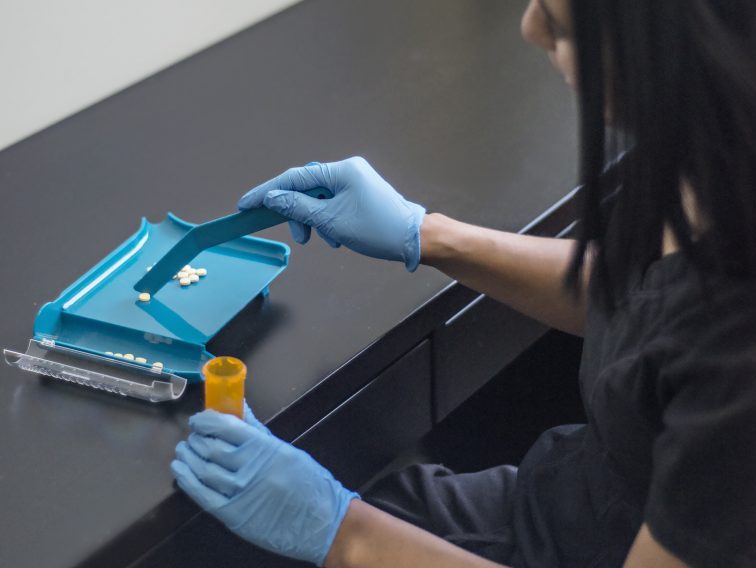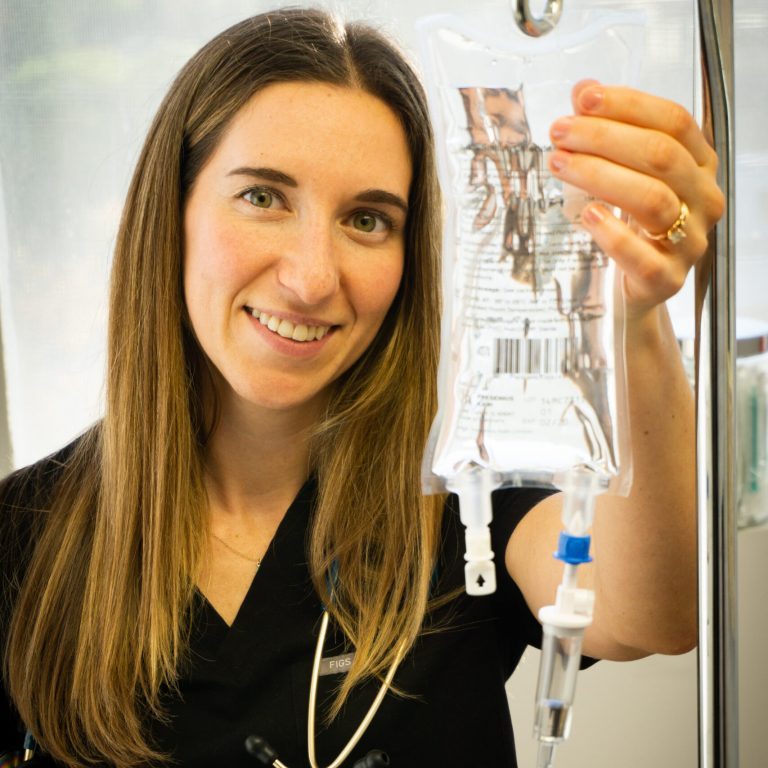Comprehensive Rheumatology
You will conveniently get all the services you need in one location.

Rheumatology is a medical specialty that focuses on the diagnosis and treatment of conditions affecting the joints, muscles, and bones. It involves the management of autoimmune diseases, inflammatory conditions, and degenerative disorders that affect the musculoskeletal system.
At Comprehensive Rheumatology Center, our board-certified rheumatologists Dr. Firooz, Dr. Aleksiejuk, and their team provide personalized care for a broad range of rheumatic diseases. Whether you are experiencing joint pain, stiffness, or swelling, or have been diagnosed with a chronic condition like lupus or rheumatoid arthritis, our team is dedicated to helping you manage your symptoms and improve your quality of life.
If you suspect you may have a rheumatic disease or would like to discuss your options for managing an existing condition, contact us at (818) 598-0500 to schedule an appointment with us at our Woodland Hills office. We look forward to working with you to achieve optimal health and wellness.
What is Rheumatology?
Rheumatologists offer a variety of treatments for rheumatic diseases, including medications, physical therapy, occupational therapy, and lifestyle modifications. The goal of treatment is to relieve pain and inflammation, prevent joint damage, and improve overall function and quality of life.
Arthritis
Arthritis is one of the most common conditions that rheumatologists treat, with roughly 23% of adults in the United States suffering from the condition. (1) It is characterized by joint pain, stiffness, and swelling. There are over 100 different types of arthritis, including:
- Rheumatoid Arthritis
- Osteoarthritis
- Gout
- Psoriatic Arthritis
- Lupus
These conditions can lead to joint deformity, disability, and decreased quality of life if not managed properly.
Autoimmune Conditions
Autoimmune diseases are also a significant part of rheumatology. These occur when the immune system mistakenly attacks healthy tissues in the body. Examples include:
- Lupus
- Scleroderma
- Sjogren’s Syndrome
- Vasculitis
Early diagnosis and treatment are essential to prevent organ damage and other complications.
Fibromyalgia
Fibromyalgia is another condition commonly treated by rheumatologists. It is characterized by chronic pain, fatigue, and sleep disturbances. The exact cause of fibromyalgia is not fully understood, but it can significantly impact a patient’s daily life.
Non-Inflammatory & Mechanical Disorders
In addition to these conditions, rheumatologists also manage a broad range of non-inflammatory and mechanical disorders affecting the joints, bones, and muscles. These include:
- Tendinitis
- Bursitis
- Carpal Tunnel Syndrome
- Trigger Finger
- Sciatica
- Herniated Disc
- Pinched Nerve
- Spinal Stenosis
- Osteoporosis
- Paget’s Disease
If you are experiencing joint pain, stiffness, or other symptoms related to the musculoskeletal system, it is essential to seek medical attention promptly. Contact Comprehensive Rheumatology Center today to schedule an appointment and learn more about how we can help you achieve optimal health and wellness.
See our website for a comprehensive list of the conditions we treat.
What Does a Rheumatologist Do?
Rheumatologists are experts in managing complex and often chronic diseases. They use a variety of diagnostic tools, such as blood tests, imaging studies, and physical exams, to determine the underlying cause of symptoms. Treatment options may include:
- Medications
- Injections of Tender Joints and Tendons
- Platelet Rich Plasma Therapy (PRP)
- Prolotherapy
- Stem Cell Injections
- Hyaluronic Acid Injections
- Physical Therapy
- Chronic Pain Rehabilitation
- Bone Density Testing
- Fracture Prevention
Benefits of Rheumatology
At Comprehensive Rheumatology Center we take a comprehensive approach to rheumatology, providing patients with personalized care aimed at improving their quality of life. Here are some benefits you can expect from a visit to our practice:
- Accurate Diagnosis: Through a combination of physical exams, imaging tests, and laboratory work, we can accurately diagnose a wide range of rheumatic conditions, including osteoarthritis, rheumatoid arthritis, lupus, and gout.
- Tailored Treatment Plans: Once a diagnosis has been made, we will develop a customized treatment plan that addresses your unique symptoms and needs. This may include medications, physical therapy, or other interventions.
- Improved Mobility and Function: With effective treatment, many patients experience improved joint mobility and reduced pain, allowing them to resume their normal activities and enjoy a better quality of life.
- Collaborative Care: Our team works closely with other healthcare providers, such as primary care physicians and physical therapists, to ensure that all aspects of your care are coordinated and optimized.
- Patient Education: We believe that informed patients are empowered patients. That’s why we take the time to educate our patients about their condition and treatment options, so they can make the best decisions for their health.
Medications for Rheumatic Disease
At Comprehensive Rheumatic Center, we make getting your medications easy with our in-house pharmacy. There are several types of medications used to treat rheumatic diseases, each with their own unique mechanisms and benefits. The function of first-line medications like NSAIDs and steroids is to reduce inflammation and reduce pain. (2)
NSAIDs
Nonsteroidal anti-inflammatory drugs (NSAIDs) are commonly used to relieve pain and reduce inflammation, but they do not slow down the progression of the disease. Common NSAIDs include:
- Ibuprofen (Motrin)
- Naproxen (Aleve)
- Aspirin
DMARDs
Disease-modifying antirheumatic drugs (DMARDs), on the other hand, are designed to slow or halt the disease progression by targeting the immune system. These include:
- Methotrexate
- Hydroxychloroquine
- Sulfasalazine
- Leflunomide
- Azathioprine
- Cyclophosphamide
- Cyclosporine
- Mycophenolate mofetil
- Tacrolimus
Corticosteroids
Corticosteroids are powerful anti-inflammatory drugs that can provide quick relief from inflammation and pain, but they should be used sparingly due to their potential side effects.
BRMs
Biologic response modifiers are another type of medication that target specific proteins in the immune system, such as tumor necrosis factor (TNF) inhibitors, interleukin-1 (IL-1) inhibitors, interleukin-6 (IL-6) inhibitors, and Janus kinase (JAK) inhibitors. These medications can be very effective in treating rheumatic diseases, but they can also increase the risk of infections and other complications.
Current Biological Drugs for Rheumatic Disease
- Rituximab (Rituxan)
- Abatacept (Orencia)
- Certolizumab Pegol
- Tocilizumab (Actemra)
- Sarilumab (Kevzara)
- Baricitinib (Olumiant)
- Upadacitinib (Xeljanz)
- Anakinra (Kineret)
- Etanercept (Enbrel)
- Adalimumab (Humira)
- Secukinumab (Cosentyx)
- Ixekizumab (Taltz)
- Ustekinumab (Stelara)
- Apremilast (Otezla)
- Guselkumab (Tremfya)
- Risankizumab (Skyrizi)
- Infliximab (Remicade)
- Golimumab (Simponi)
- Brodalumab (Siliq)
- Olokizumab
- Sirukumab (Plivensia)
- Tildrakizumab (Ilumya)
- Vobarilizumab
When Should I See a Rheumatologist?
Candidates for rheumatology care include individuals who are experiencing symptoms such as joint pain, stiffness, and swelling, as well as those with a family history of autoimmune diseases. Other symptoms include, but are not limited to:
- Fatigue
- Inflammation
- Rashes
- Fever
- Muscle Aches
- Dry Eyes
- Dry Mouth
- Weight Loss
- Brain Fog
- Abdominal Pain
- Food Sensitivities/Intolerances
- Chronic Illness
If you’re experiencing symptoms related to a rheumatologic condition or have concerns about your joint health, schedule a consultation with us to discuss your options for care.
Diagnosis & Management
If you are experiencing joint pain or stiffness, you may benefit from a visit to a rheumatologist. The doctors at the Comprehensive Rheumatology Center in Woodland Hills are experts in diagnosing and treating rheumatic diseases, which can range from osteoarthritis to lupus.
During your personal consultation, we will take a detailed medical history and perform a physical examination to evaluate your symptoms. We may also order blood tests, Musculoskeletal Ultrasound, X-Ray imaging, or other diagnostic tests to help identify the underlying cause of your condition.
Once a diagnosis has been made,we will work with you to develop a personalized treatment plan that may include medications, physical therapy, lifestyle changes, or other interventions. We will also provide ongoing monitoring and support to help manage your symptoms and improve your quality of life. To schedule a consultation with us, please call our office at (818) 598-0500.
Getting Treatment
Unlike other medical specialties, rheumatology does not typically involve surgical procedures or incisions. Instead, our treatments may include:
- Infusion Therapy
- Therapeutic Injections
- Medication Management
- Physical Therapy
- Lifestyle Modifications
To ensure the best possible outcomes, it is important to follow all instructions provided by the rheumatologist and attend all scheduled follow-up appointments. Our team at Comprehensive Rheumatology Center is committed to providing compassionate and comprehensive care to help our patients achieve optimal health and wellness.
The results of rheumatology treatments vary depending on the individual patient’s condition and specific treatment plan. It is important for patients to attend follow-up appointments so that we can monitor their progress and adjust their treatment as necessary. With proper management, patients can expect to experience improved quality of life, increased mobility, and reduced pain associated with their rheumatic conditions.
At Comprehensive Rheumatology Center, we strive to provide the highest standard of care and support for our patients throughout their journey towards better health. Contact us today to schedule a consultation and take the first step towards managing your rheumatic condition.
Cost of Rheumatology in Woodland Hills
During your initial consultation we will assess your condition and provide you with a customized treatment plan along with an accurate estimate of the cost involved.
Our office works with most insurance companies to help you maximize your benefits and minimize your out-of-pocket expenses. We also offer flexible payment options to ensure that our patients can receive the best care possible without financial constraints. To learn more about our services, call (818) 598-0500 or visit us at our Woodland Hills location. Let us help you live a pain-free life!
FAQ
What can I expect during my first visit to a rheumatologist?
During your first visit to a rheumatologist, they will ask you about your symptoms and medical history. They will also perform a physical exam and may order blood tests or imaging studies to help make a diagnosis. Once a diagnosis is made, your rheumatologist will work with you to develop a personalized treatment plan.
Do I need a referral to see a rheumatologist?
In most cases, a referral from your primary care physician is required to see a rheumatologist. However, some insurance plans allow patients to self-refer. Contact your insurance provider or rheumatologist’s office to determine what your plan allows.
How often do I need to see a rheumatologist?
The frequency of visits to a rheumatologist depends on the severity of your condition and your treatment plan. Some patients may need to see their rheumatologist every few weeks or months, while others may only need to be seen once a year. Your rheumatologist will work with you to determine the best schedule for follow-up visits.
References
- Park J, Mendy A, Vieira ER. Various Types of Arthritis in the United States: Prevalence and Age-Related Trends From 1999 to 2014. American Journal of Public Health. 2018;108(2):256-258. doi:https://doi.org/10.2105/ajph.2017.304179
- Bullock J, Rizvi Syed AA, Saleh Ayman M, et al. Rheumatoid arthritis: A brief overview of the treatment. Medical Principles and Practice. 2018;27(6):501-507. doi:https://doi.org/10.1159/000493390











